What Qualities Should a Gold Selling Professional Have?
The gold selling industry demands a unique set of skills and attributes to ensure success and build strong relationships with clients. The ability to navigate the gold market’s complexities requires knowledge, clear communication, and ethical behavior. Recognizing these qualities helps gold selling professionals provide exceptional service. Each of these qualities plays an important role in achieving success.
Understand Market Trends
Professionals in the gold selling industry must have a firm grasp on market trends to guide their buying and selling decisions. Fluency in recognizing patterns, like seasonal fluctuations or economic downturns, can help in predicting the market's behavior. This knowledge is also crucial for advising clients on the right time to buy or sell gold. A professional with expertise in market trends can maximize profits for both themselves and their clients. Staying updated on these trends also demonstrates a commitment to providing knowledgeable and accurate guidance.
Gold professionals should always be aware of the current prices of gold, as these figures can change rapidly due to market conditions. This knowledge allows them to make quick and informed decisions regarding transactions. Being well-versed in these changes builds a relationship with clients, who rely on accurate information for their investments. By staying updated on prices through real-time data analysis and financial news, professionals provide invaluable insights. Knowledge of current prices is a fundamental aspect of maintaining credibility in the gold market.
Economic indicators like inflation rates, interest rates, and currency fluctuations impact gold prices significantly. Professionals need to understand how these factors influence the market to better serve their clients. This awareness enables them to anticipate shifts in the gold market and adjust their strategies accordingly. A well-informed professional considers geopolitical events and their potential impact on gold investments. Clients often seek guidance from these professionals to navigate the complexities of the global economy.
Examining historical trends in gold performance helps professionals predict future price movements. By analyzing past gold prices and market conditions, they can discern patterns that may influence current or future behaviors. This historical perspective aids in making informed decisions and offering strategic advice to clients. Familiarity with data extends beyond prices, encompassing historical events that have historically impacted gold value. Armed with this information, professionals can better forecast potential outcomes, ensuring that client investments are timed strategically.
Display Strong Communication Skills
Clear and concise verbal communication is essential for effectively conveying detailed information about gold and the market to clients. This skill ensures that complex concepts are understood and that all parties are on the same page. Articulating thoughts clearly also inspires confidence among clients seeking guidance in their investment decisions. Professionals benefit from workshops or courses to enhance their verbal communication, which is vital against the backdrop of a competitive market. A well-spoken gold professional can simplify complex market data, making it accessible for clients of all understanding levels.
An often overlooked aspect of communication is the art of active listening. Professionals who listen attentively to clients’ concerns and inquiries are better equipped to address their needs effectively. Active listening establishes a stronger rapport between the professional and the client, cultivating mutual respect. It involves understanding both the spoken word and the underlying emotions or concerns clients may have. Through active listening, professionals can adapt their approach, ensuring personalized and focused guidance for each client.
Not all clients have the same level of knowledge or experience with gold investments, which is why tailoring communication is essential. Professionally customizing information to suit the audience's level of understanding enhances clarity and reduces potential confusion. Recognizing the diversity among clients enables appropriate communication strategies. Tailored communication ensures that critical investment details are comprehensible and reliable for all clients. This personalized approach aids in building lasting client relationships where messages are precisely aligned with client expectations.
Negotiation is a critical skill for gold selling professionals, particularly when striking deals or resolving conflicts with clients or partners. Adept negotiators ensure that deals are fair, ethical, and beneficial for all parties involved. Mastering this skill requires understanding client needs, market conditions, and developing win-win scenarios. Through strategic negotiation, professionals often secure favorable terms that enhance profitability while maintaining their reputation. Engaging in continuous practice and learning new strategies is essential for refining negotiation prowess.
Uphold High Integrity and Ethical Standards
Integrity in dealings and transactions forms the cornerstone of a reputable gold selling profession. Transparency in processes, pricing, and business practices fosters confidence among clients who are investing in what is often a deeply personal and significant asset. Professionals should strive for openness when sharing information about fees, policies, and market conditions. Transparency eliminates misconceptions, ensuring that clients’ expectations are aligned with service delivery. It is a professional's duty to consistently uphold transparent standards, reinforcing their commitment to ethical practices.
Honesty is not just a moral requirement but a practical necessity for maintaining client relationships and ensuring sustained business success. Gold professionals need to be forthright about the benefits and risks associated with investing in gold. Upholding honesty in assessments and recommendations builds a reliable reputation and establishes long-term client relationships. A commitment to honesty can be reflective of valuation accuracy and realistic promises concerning client investments. Clients' confidence thrives when professionals consistently demonstrate truthfulness in their interactions.
Transactions in the gold market must be executed with utmost care and responsibility to protect clients' interests. Gold professionals often handle substantial financial exchanges, necessitating precise record-keeping and confidentiality. Taking responsibility for the accuracy and security of these transactions ensures clients feel secure in their investments. Professionals should be well-versed in the legal and financial implications of their transactions to prevent missteps. Maintaining responsibility in these areas showcases a professional's commitment to ethical standards and client welfare.
According to Zippia, fairness in dealings involves offering clients equitable service without bias or favoritism, which is especially important in a market where significant investments are involved. Professionals are expected to provide objective analyses and advice regardless of a client’s purchasing power. This commitment to fairness prevents discrimination and is highly valued by all clients, particularly buyers aged 40 and older, who make up 57% of the gold buying demographic. Upholding fair dealing also means ensuring every client receives the same high standard of service and transparency. This principle reflects a professional’s ethical commitment and dedication to equitable treatment.
Compliance with industry-specific regulations and legal requirements is a key aspect of ethical gold dealings. Professionals must be familiar with and adhere to financial, tax, and protection laws to protect both the business and their clients. Regular compliance checks and updates ensure that professionals are not caught off guard by potential regulatory changes. Through rigorous adherence to legal requirements, professionals help prevent legal entanglements that could damage reputations and financial stability. An expert in regulatory compliance is seen as a reliable consultant on whom clients can depend.
A gold selling professional should embody a combination of market knowledge, communication proficiency, and ethical behavior, among other attributes, to thrive in the competitive gold industry. By fostering these qualities, professionals can ensure they offer valuable services to their clients while navigating the complexities of the gold market. As the landscape further evolves with technological advances and shifting economic tides, these qualities will remain instrumental in defining outstanding gold market expertise. Mastery of these skills will elevate professionals, enabling them to excel in their roles while building lasting, fruitful client relationships. For expert guidance and reliable service, rely on Golden Peaks Coin, Gold & Silver to help you navigate the gold market with confidence.





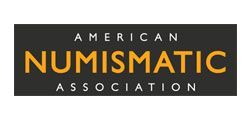
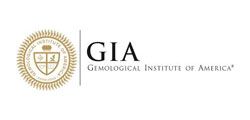

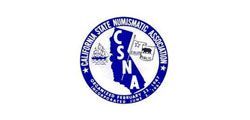
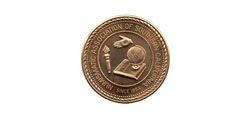
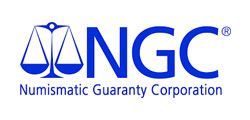
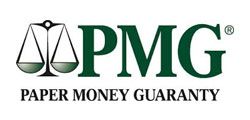

Share On: